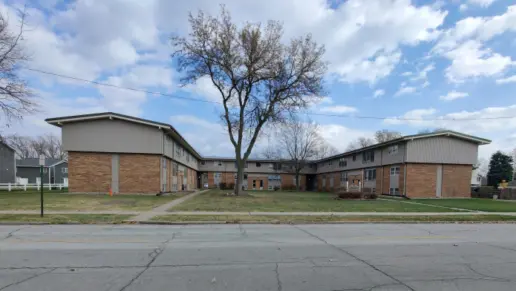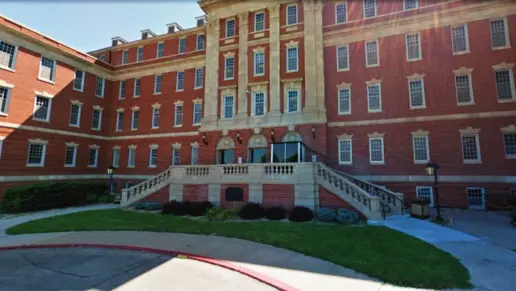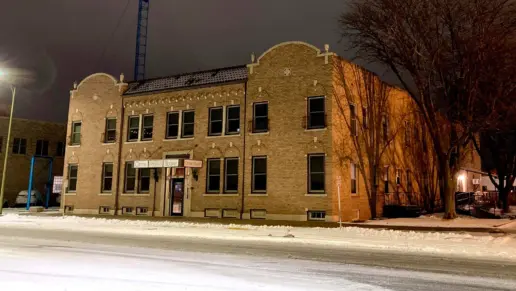The worst experience of my life was to come to this place, I regret having done it. The staff has no idea how to deal with patients who are addicted to drugs, if you are looking for help, I recommend that you find a place with certified personnel that assures them that you w ...
About Behavioral Health Specialists – Sunrise Place
Sunrise Palace is a residential mental health and drug and alcohol addiction treatment center in Norfolk, Nebraska. Sunrise Palace is a location operated by Behavioral Health Specialists. They believe in treating addiction through individually focused and designed programs that cultivate personal relationships and support. They are a private facility with residential amenities. Sunrise Palace offers sliding fee payment plans and does not turn clients away due to an inability to pay. They accept clients from all backgrounds.
Clients may be required to undergo detox before they are accepted into a treatment program. Sunrise Palace provides clients with a supportive, safe, and secure facility where they can safely detox from illicit substances under monitoring and care from medical staff. During this time, the health and needs of the client are assessed. They are also invited to participate in education groups to learn more about the nature of addiction to prepare them for the next phase of treatment.
An inpatient residential program is designed for clients who would benefit the most from a tightly structured and controlled environment. Clients live on site during treatment, where staff closely monitors them. Inpatient care is restrictive to prevent clients from engaging in dangerous behaviors and relapsing.
The inpatient program at Sunrise Palace is a short term intensive program. Clients are scheduled for 42 hours of therapy-based treatment activities each week. While every treatment plan is tailored to the individual needs of a client, they generally include individual, group, and family therapy alongside education groups that explore the nature of addiction, each client’s addictive behaviors and associated negative thinking patterns, and teach recovery coping and life skills that support healthy independent living.
The outpatient day program is the next level of care following inpatient treatment for most clients. It’s designed to benefit those transitioning out of an inpatient program. Still, it can also be a point of entry for clients whose symptoms aren’t severe enough that inpatient care is recommended. During treatment, clients live at home and return to the facility regularly to receive assessments and participate in individual, group, and family counseling.
Rehab Score
Gallery


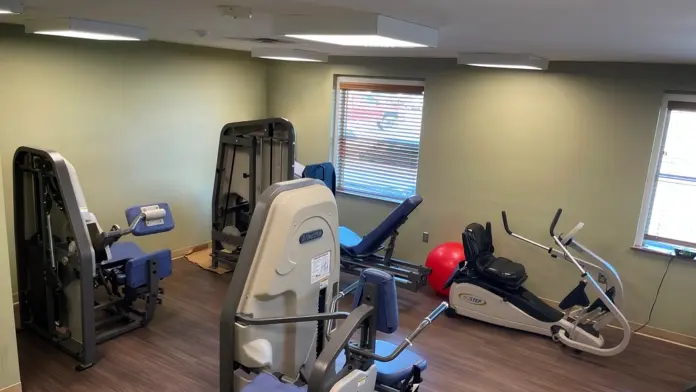

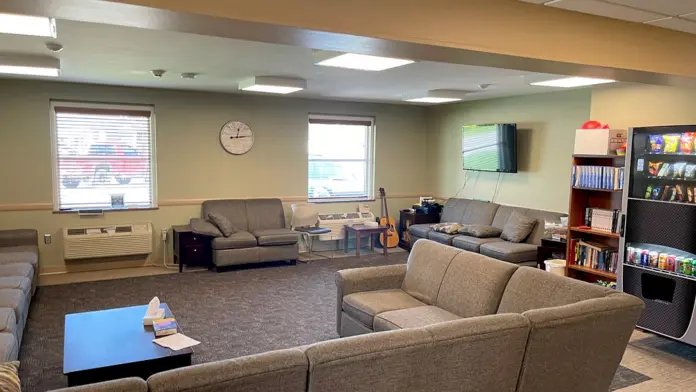
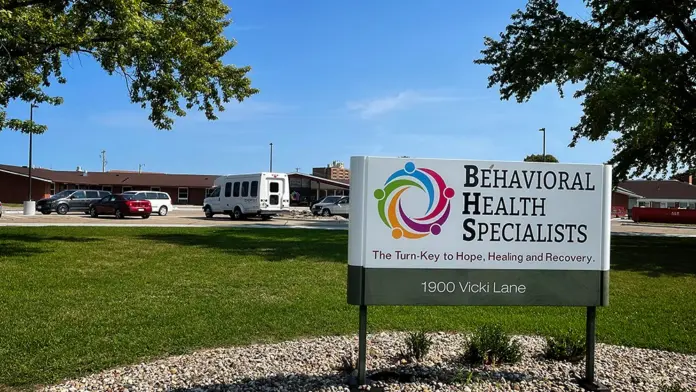
Location
Accepted Insurance
Other Forms of Payment
Private insurance refers to any kind of healthcare coverage that isn't from the state or federal government. This includes individual and family plans offered by an employer or purchased from the Insurance Marketplace. Every plan will have different requirements and out of pocket costs so be sure to get the full details before you start treatment.
Self-pay involves paying for treatment out of your own pocket. You can use savings or credit, get a personal loan, or receive help from family and friends to fund your treatment. If you don't have insurance or your insurance plan doesn't cover a specific program, self-pay can help ensure you still get the care you need.
Financial aid can take many forms. Centers may have grants or scholarships available to clients who meet eligibility requirements. Programs that receive SAMHSA grants may have financial aid available for those who need treatment as well. Grants and scholarships can help you pai for treatment without having to repay.
Sliding scale payments are based on a client's income and family size. The goal is to make treatment affordable to everyone. By taking these factors into account, addiction recovery care providers help ensure that your treatment does not become a financial burden to you or your family, eliminating one barrier to care.
Medicaid is a state based program that helps lower-income individuals and families pay for healthcare. Medicaid covers addiction treatment so those enrolled can use their coverage to pay for rehab. When a program accepts Medicaid the client often pays very little or nothing out of their own pocket.
Addiction Treatments
Levels of Care
Treatments
The goal of treatment for alcoholism is abstinence. Those with poor social support, poor motivation, or psychiatric disorders tend to relapse within a few years of treatment. For these people, success is measured by longer periods of abstinence, reduced use of alcohol, better health, and improved social functioning. Recovery and Maintenance are usually based on 12 step programs and AA meetings.
During drug rehab in Nebraska, you'll participate in therapies that address the many issues that contribute to addiction. Treatment includes physical, mental, emotional, and relational aspects. These methods provide the tools you need to achieve long-term recovery.
Many of those suffering from addiction also suffer from mental or emotional illnesses like schizophrenia, bipolar disorder, depression, or anxiety disorders. Rehab and other substance abuse facilities treating those with a dual diagnosis or co-occurring disorder administer psychiatric treatment to address the person's mental health issue in addition to drug and alcohol rehabilitation.
Opioid rehabs specialize in supporting those recovering from opioid addiction. They treat those suffering from addiction to illegal opioids like heroin, as well as prescription drugs like oxycodone. These centers typically combine both physical as well as mental and emotional support to help stop addiction. Physical support often includes medical detox and subsequent medical support (including medication), and mental support includes in-depth therapy to address the underlying causes of addiction.
Substance rehabs focus on helping individuals recover from substance abuse, including alcohol and drug addiction (both illegal and prescription drugs). They often include the opportunity to engage in both individual as well as group therapy.
Programs




Clinical Services
Research clearly demonstrates that recovery is far more successful and sustainable when loved ones like family members participate in rehab and substance abuse treatment. Genetic factors may be at play when it comes to drug and alcohol addiction, as well as mental health issues. Family dynamics often play a critical role in addiction triggers, and if properly educated, family members can be a strong source of support when it comes to rehabilitation.
The premise of dialectical behavior therapy is that many problems are due to a lack of skills to properly handle them. This therapy aims to give you the skills to manage your emotions and challenging situations so you can live a healthier, productive life.
Group therapy is any therapeutic work that happens in a group (not one-on-one). There are a number of different group therapy modalities, including support groups, experiential therapy, psycho-education, and more. Group therapy involves treatment as well as processing interaction between group members.
In individual therapy, a patient meets one-on-one with a trained psychologist or counselor. Therapy is a pivotal part of effective substance abuse treatment, as it often covers root causes of addiction, including challenges faced by the patient in their social, family, and work/school life.
Often used to address addiction in Nebraska, motivational interviewing helps you become motivated to change. Research shows this method is effective for clients who are unprepared for change or feel unmotivated to change.
Trauma therapy addresses traumatic incidents from a client's past that are likely affecting their present-day experience. Trauma is often one of the primary triggers and potential causes of addiction, and can stem from child sexual abuse, domestic violence, having a parent with a mental illness, losing one or both parents at a young age, teenage or adult sexual assault, or any number of other factors. The purpose of trauma therapy is to allow a patient to process trauma and move through and past it, with the help of trained and compassionate mental health professionals.
Whether a marriage or other committed relationship, an intimate partnership is one of the most important aspects of a person's life. Drug and alcohol addiction affects both members of a couple in deep and meaningful ways, as does rehab and recovery. Couples therapy and other couples-focused treatment programs are significant parts of exploring triggers of addiction, as well as learning how to build healthy patterns to support ongoing sobriety.
Signs that you have become dependent on nicotine include smoking more than one pack a day, smoking within five minutes of waking up, and smoking to avoid withdrawal symptoms. Fortunately, nicotine replacement therapy in Nebraska can help you break this dependence and work toward a nicotine free lifestyle.
Amenities
-
Private Setting
Staff & Accreditations
Staff
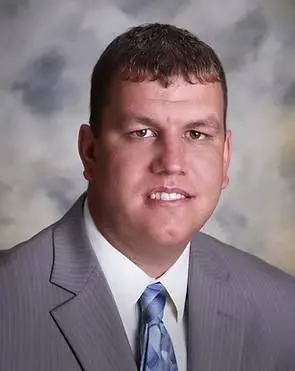
Executive Director

Director of Operations

Clinical Director

Director of Human Resources
Accreditations

The Joint Commission, formerly known as JCAHO, is a nonprofit organization that accredits rehab organizations and programs. Founded in 1951, the Joint Commision's mission is to improve the quality of patient care and demonstrating the quality of patient care.
Joint Commission Accreditation: Yes
Contact Information
1900 Vicki Ln
Norfolk, NE 68701




